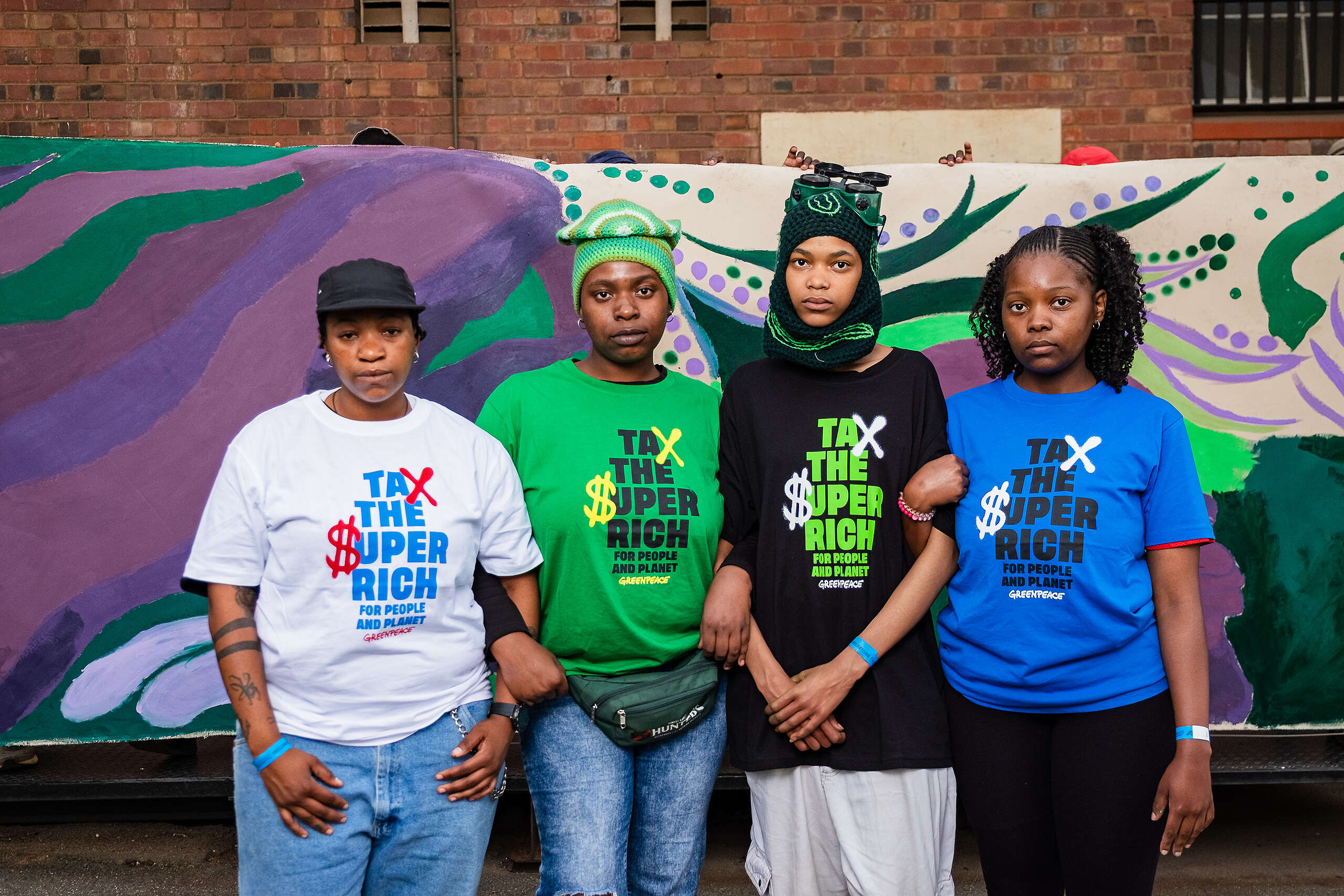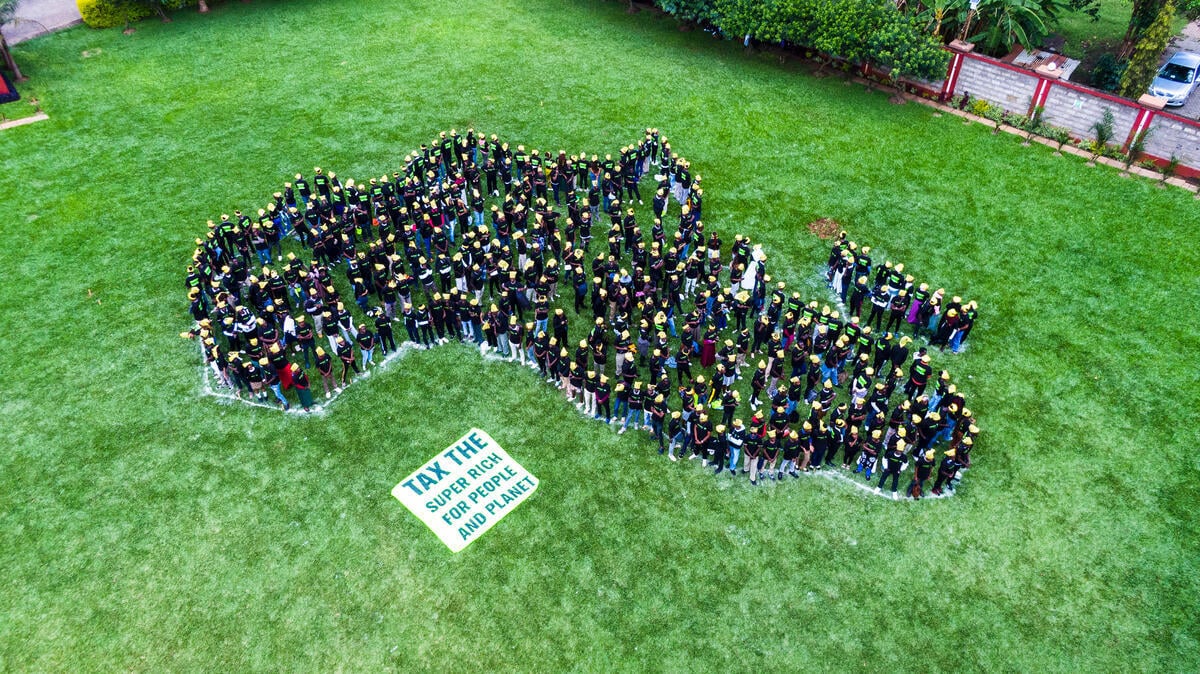It’s hard to count all the protests that have taken over our streets and dominated our newsfeeds this year. Millions of us are waking up to demand change. And we’re making ourselves impossible to ignore.
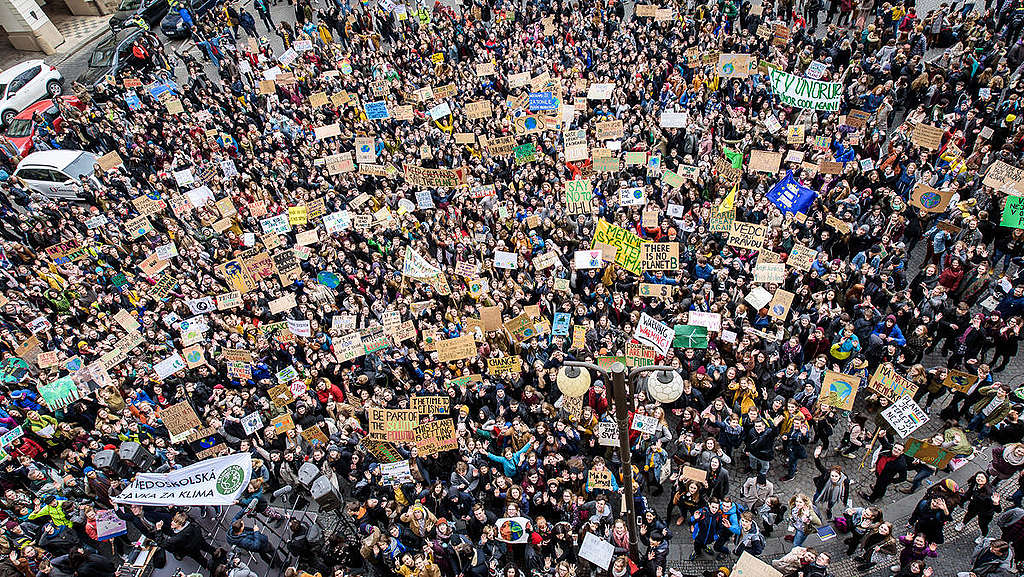
Each protest has different triggers, and each protester has a different reason for why they’re there, but the fuel is familiar: stifled democracy, dissatisfaction with those in power, staggering inequality, and planetary crisis.
We asked people across the world what it’s like to be part of the age of protest.
Vanessa Nakate – Uganda

You expect to encounter all kinds of negativity from people, which is quite scary. In my country, few really understand what climate change is. And some don’t even believe in it. It is not easy being out there; we are faced with trolls and people who abuse us and disrespect us.
After college, I wanted to do something that would change the lives of the people in Uganda. I found out about the climate strikes and decided to start my own in Kampala. I went out to protest because I wanted to tell people about the biggest threat we are facing and how to stop it. I want to change this system of greed, and demand protection for every living being on planet Earth.
It has been very scary striking from certain locations. But in the end it feels right because I am doing something in order to try and save the planet.
I want these protests to bring a change in the system of the world. I want people to realise the importance of our planet and to realise the connection that we have with mother Earth. I want these protests to put the right leaders into government and kick out all the oil men. I want countries to declare a climate emergency and immediately start implementing solutions to climate change.
No country in Africa has declared a climate emergency yet. Through these protests, I hope we can defeat the climate crisis while we still have time.
Joel Enrique Peña Panichine – Chile
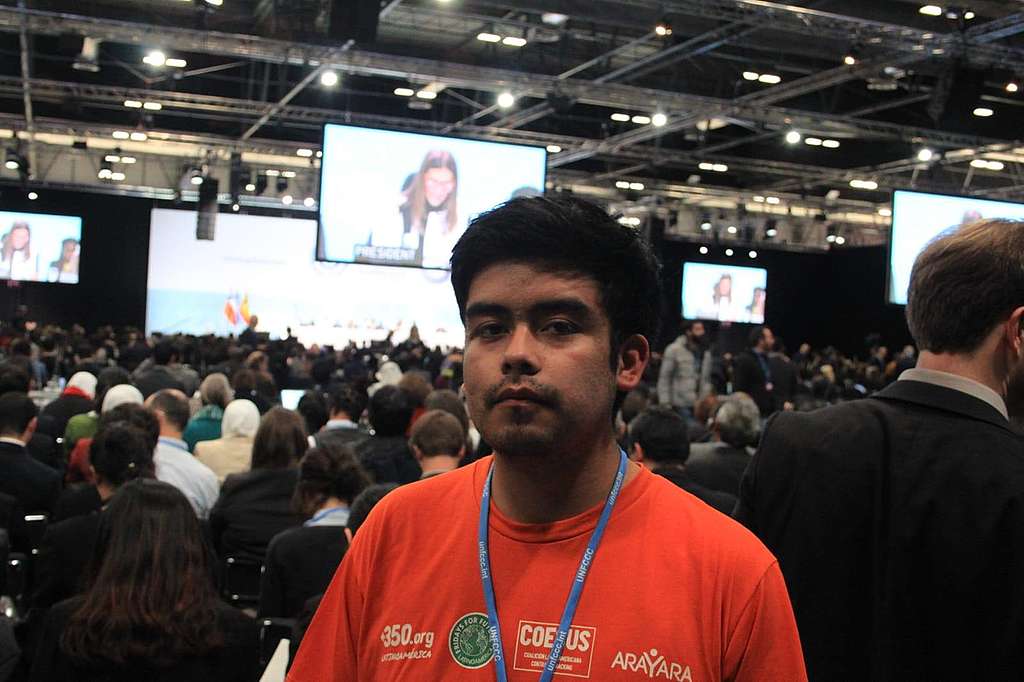
When you take to the streets and feel the courage and strength with which the people fight, you realise that this is important. It’s part of history.
All we want are basic rights and dignity. People are tired. In Chile, for some to live in luxury, others must live in poverty. Climate justice is also social justice – many issues have the same underlying problem.
I live in a country where money is considered more important than human and environmental well-being. It is our duty as citizens to build the future that we want and need. And that is only achieved by fighting every day, in different ways. You can be shot, beaten, even if your protest isn’t violent. I’ve always believed that the real power belongs to the people and that: “the people united will never be defeated”. With each action, each opinion, each thing we do, we can build a better world.
Facundo Mercado Sandoval – Chile
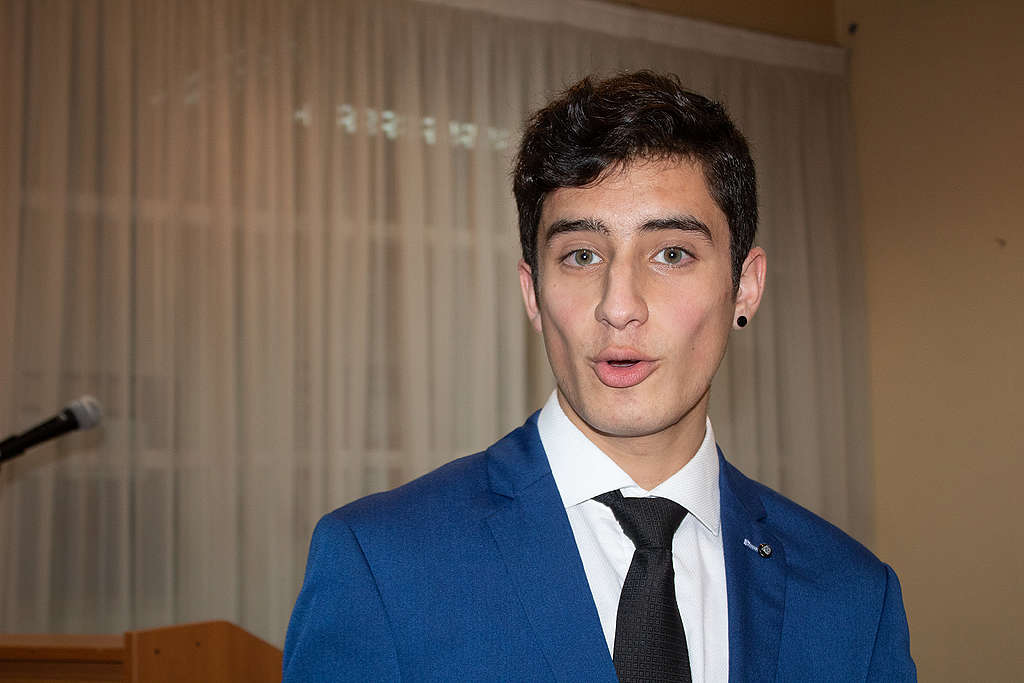
It feels like people have woken up. The streets are somehow ours again. I don’t really know how to express it. It’s like walking back in time, to when I was a kid and would play with the other kids on the block. It feels like joy, empowerment, dreams of a brighter future.
These people feel like hope.
The sign I take on protests says, “When the rich wage war, it’s the poor who die.” Our government, our laws, the way our country works, is around one specific goal: to make the rich, richer, and the poor, poorer.
Chile is made for the few; you can only get quality education if you pay for it, natural resources are privatized, ecosystems are contaminated, there is systematic police violence, and our media is heavily controlled. It feels like we never left Pinochet’s dictatorship.
We are fighting for the constitution to change, so that all human beings are treated equally and for the environment to not be seen as an object to sell, but our life-force. I’d like a Chile where dignity becomes a habit.
Mathilde Blouet – France
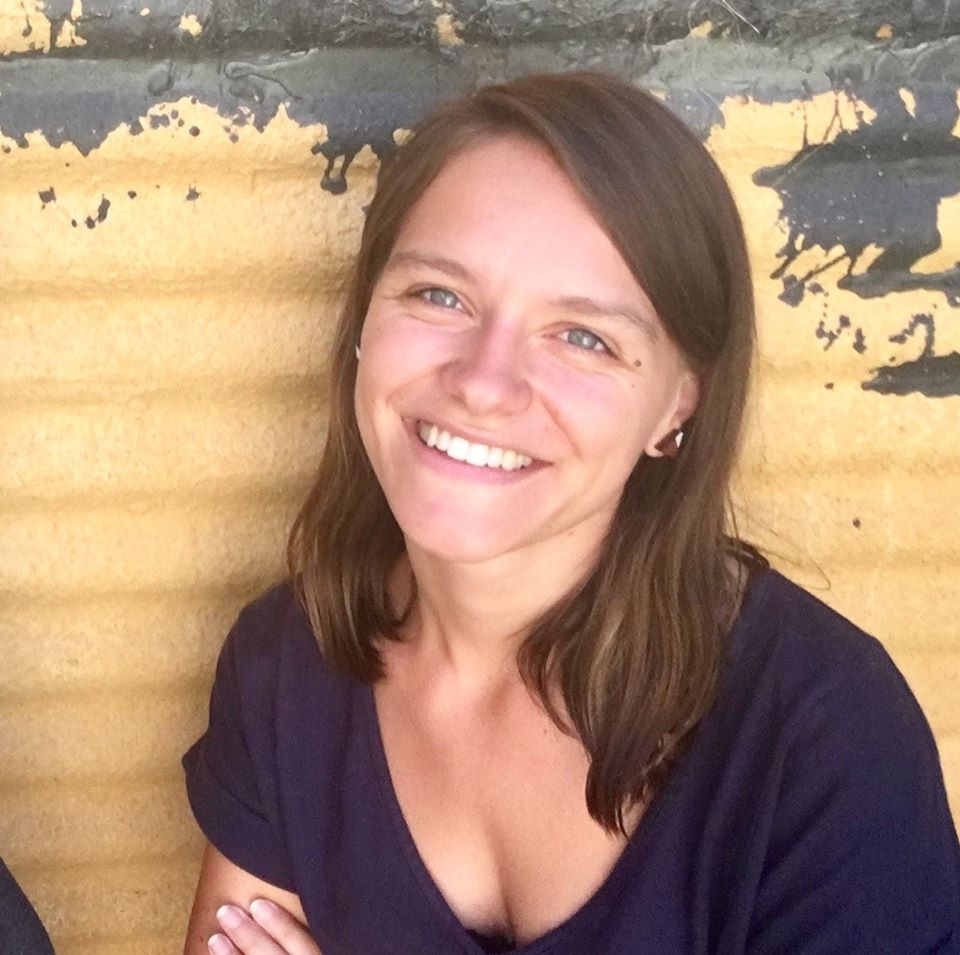
I protest for a lot of reasons, but mainly because I want to speak as one voice with thousands of other people as angry as I am. People angry about climate change, about its impact on our health, about species disappearance, about rising seas, about deforestation, about populations forced to flee their homes. There are so many problems I don’t even know where to begin.
I decided a year ago to act, after a lot of disappointment in our political system, and the impression that my own daily measures weren’t enough. I felt alone when I talked about these issues to my friends and family. They would agree, but they weren’t as outraged as I expected. So I really wanted to meet people who thought like me, to shout with them in the streets.
I like the union, the fact that everybody – young and old, parents, lovers, friends, activists, passers-by – can join together for a single cause. I like the music, the dancing, the shouting, the pauses for silence. When I come back home I really feel like I had a moment of positive action and I’m appeased, for a little while.
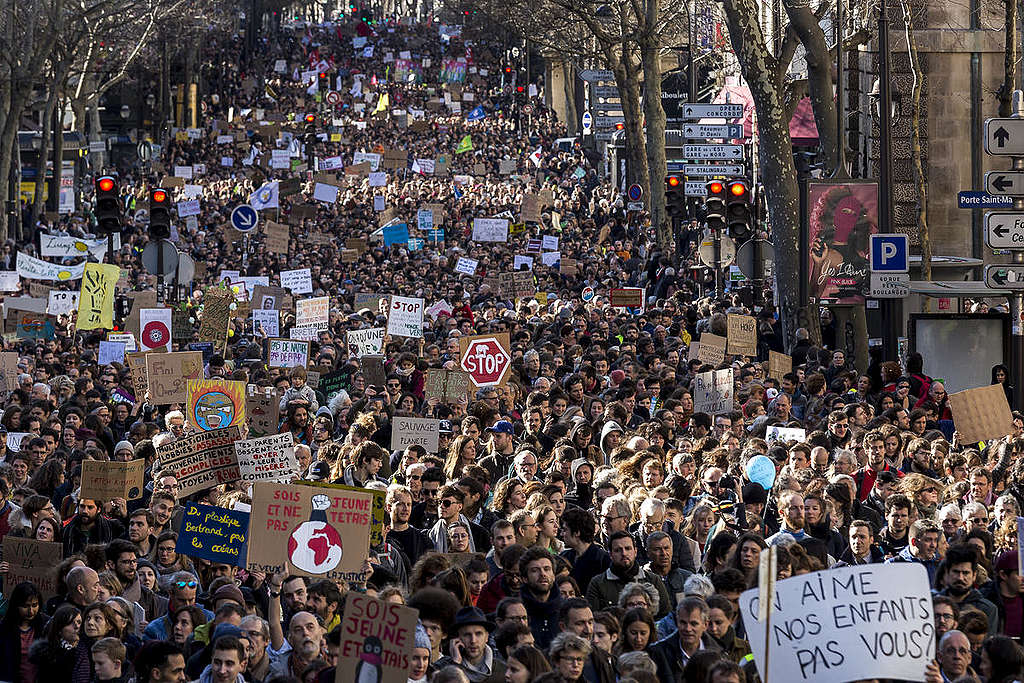
And I know we are not the only ones. I feel hope when I see the numbers of protests around the world every weekend. The fact that Paris, London, Montreal, Bangkok, Brussels, San Francisco and many other cities are protesting for the climate shows that we have the power to change things.
Numbers are important. The pictures of crowds walking in the streets stay in your mind. Maybe it’s naive, but I think with patience and a clear message, we can move in a better direction.
Arshak Makichyan – Russia
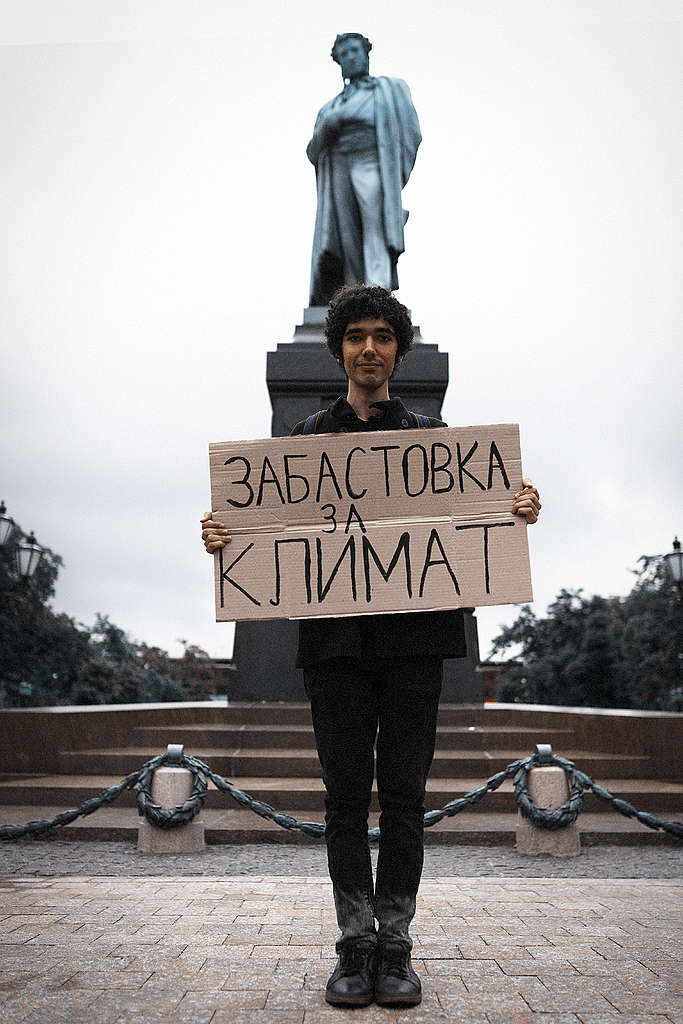
It’s strange that I learned about the climate crisis from a 15 year old girl in Sweden, rather than at school. Our future is at risk and almost no-one cared enough to talk about it in Russia. It’s like we’re on another planet.
I think that people have the right to know the truth. And when they find out, it will be easier to change something together.
A single person protest is the only way to demonstrate in Russia without requiring permission from the government, so at first I was mostly striking alone. I’m now coordinating a real movement. It’s small, yes. But here, we risk much more when we protest. People here know: if you are not afraid to protest, then it’s serious. And this is serious.
It’s naive to say that you want to save the planet when the problem is so global you can’t know what impact an individual has. The science and global crisis can unite us or destroy us. The scientific facts are the same everywhere and you can’t put the science in jail.
We are going to prove that activism works everywhere. And then we’re going to change the world.
Sometimes I feel despair, but I don’t feel powerless. Because I know, that we are doing something so important and good. And I know that there are millions of people behind us.
Before I started my activism I was lonely. But you can’t sit alone in your room while so many bad things are happening. Yes, maybe I feel despair, but I have to be strong. Because I’m not alone.
Nanticha Ocharoenchai – Thailand
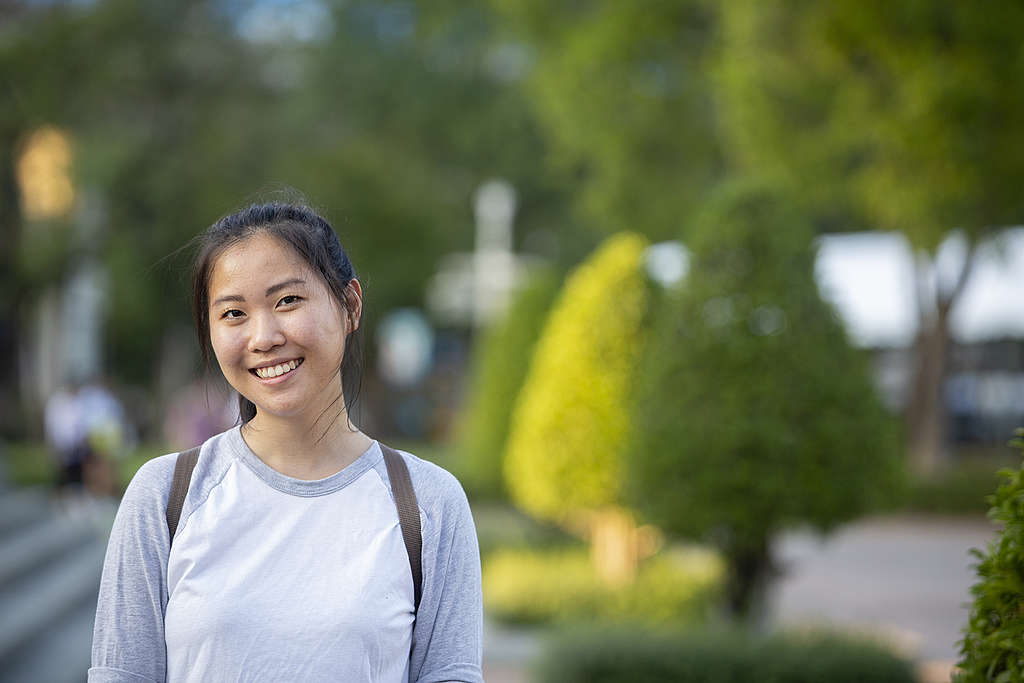
We’re probably quite lucky to be protesting in this era, with the existence of new technology like social media. It’s become easier to voice your demands, to make yourself heard, to support and be supported. And yet, our world leaders don’t want to hear us.
Whether we offer constructive solutions and scientific evidence or go on strikes and protest, some politicians and corporations continue to ignore us. It seems like they simply don’t care that we are in a climate emergency and need urgent action now.
I’m frustrated and tired. I don’t want to protest anymore. I never really wanted to, I just wanted to have fun and live my life and explore the world like any young or old person does. But if doing nothing means dying young before I get to experience all of that, then I guess I have no choice.
Despite all the disappointing high-level meetings, failed negotiations and lack of action from our governments, standing up for your future is still better than sitting at home and complaining.
I have a pretty realistic perception of our planet in a few decades, and it’s not an optimistic one. It’s not easy to sugarcoat all the scientific reports about our worsening climate. Despite our bleak future and slow progress in climate action, it is empowering to see countless numbers of people who still choose to fight for what they believe in. It’s what keeps me going everyday, regardless of whether we will win or lose this battle.
I do hope we don’t have to fight this battle forever, though. I just want to go chill at the park with my friends and enjoy the weather. And for now, that’s what I’m fighting for.
Faiq Murtadho – Indonesia
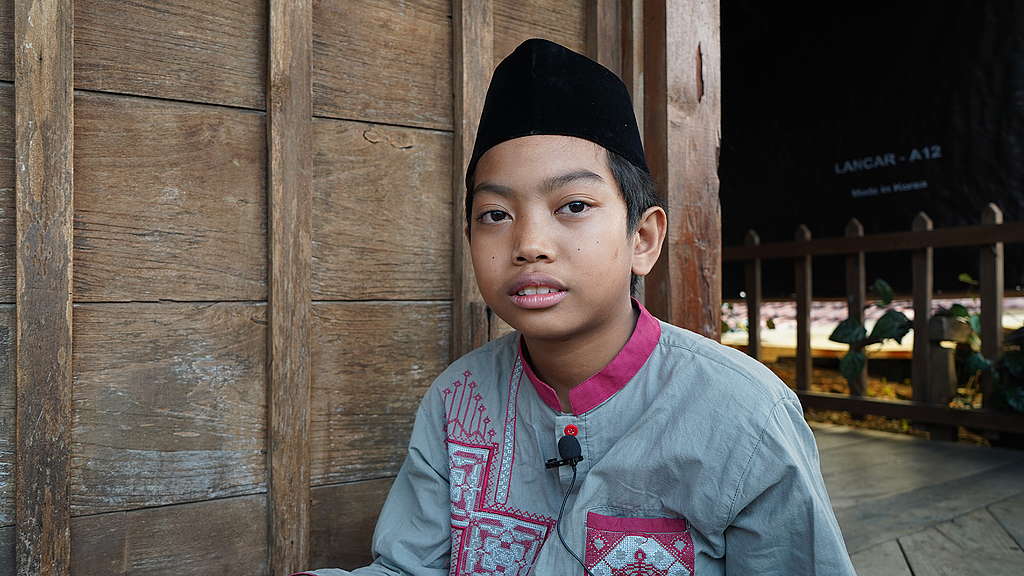
A lot of adults, governments, and companies have been profiting from the destruction of the planet. Greta Thunberg has reminded them that they must be held accountable. She is very brave to raise her voice against the system.
Like the forest that is burned forcing tigers to leave because there is no longer food or shelter, we too will lose our home when we destroy the ecosystem.
For me, environmental protection is inherently linked to religion.
In Islam, there’s a saying that “cleanliness is part of faith”. This means that we must protect the planet.
This could be transitioning our energy from fossil fuels to renewable energy, allowing us to preserve the environment we live in. This is why I’m protesting.
These interviews have been edited for clarity.



